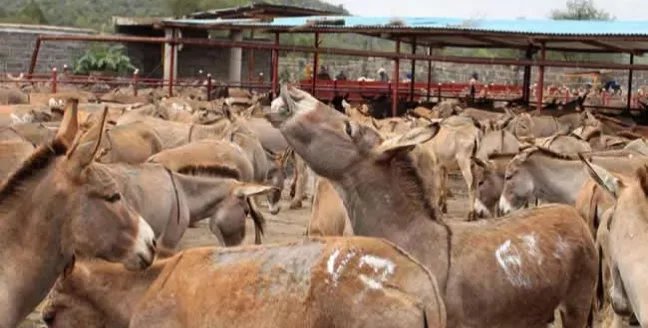The National Association of Donkey Farmers (NADFAMS) has projected that the country could annually generate over $60 million and offer employment opportunities for millions of youths through donkey production.
Speaking at the association’s official inauguration and certificate presentation in Abuja, Mr. Chidebere Innabuike, a member of NADFAM’s Board of Trustees and CEO of EST Emmalex Global Farms Ltd, stressed the need for substantial investments in donkey breeding to bolster the nation’s economy.
“If Nigeria delves into donkey production for exportation and processing, it can yield $60 million annually. However, to achieve this, there needs to be a focused effort on production. We aim to achieve this goal within the next five to seven years, which will significantly create employment opportunities for numerous youths,” he highlighted.
Innabuike also stressed the medicinal value of donkeys besides their economic and social benefits. He urged the government to extend support through loans or grants to promote investments in donkey production.
“To fulfil our goal of producing millions of donkeys annually, we are planning to establish ranches, particularly in viable areas like the north. We request the government’s support in the form of loans or grants through the Ministry of Agriculture,” he urged.
The association’s ambition includes producing two million donkeys by 2030 and establishing donkey ranches in various states such as Gombe, Sokoto, Yobe, Adamawa, and Kano.
Mrs. Winnie Lai-Solarin, the Director of Animal Husbandry Services at the Federal Ministry of Agriculture and Food Security, expressed the government’s commitment to boost donkey production and prevent the species from extinction.
“The establishment of the Donkey Value Chain within the Department of Animal Husbandry Services, alongside various interventions and stakeholder engagements, underscores our commitment to safeguarding and increasing donkey production,” she affirmed.
She lauded the formation of NADFAMS as a pivotal step toward achieving this objective and stressed the association’s role in preventing illegal slaughtering and processing of donkeys for export, thereby contributing to wealth creation and rural economic development.
(NAN)
We’ve got the edge. Get real-time reports, breaking scoops, and exclusive angles delivered straight to your phone. Don’t settle for stale news. Join LEADERSHIP NEWS on WhatsApp for 24/7 updates →
Join Our WhatsApp Channel










